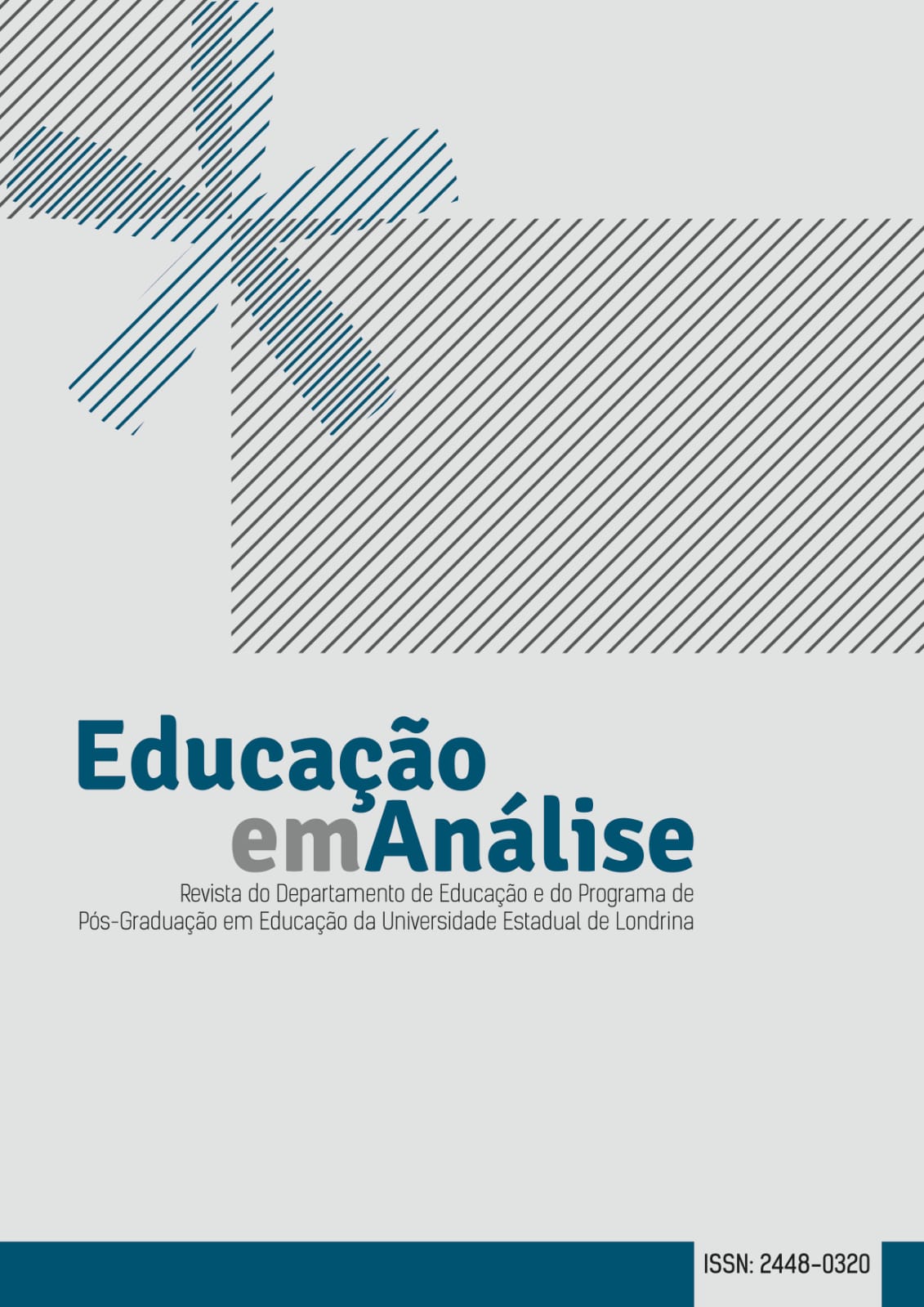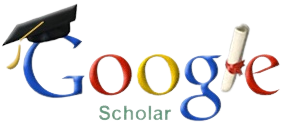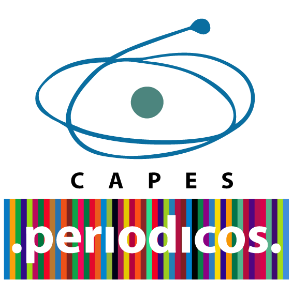The little ones and the book-object: the importance of reading in the process of humanization of children
DOI:
https://doi.org/10.5433/1984-7939.2022v7n2p477Keywords:
Early Childhood Education, Reading, Human Development, Early Childhood.Abstract
The present article is part of a bibliographic and documental research, whose objective was to understand the importance of reading for children from zero to three years old and, thus, understand how the insertion of the child in the world of literate culture, through access to books as a cultural object, can contribute to human development, especially the higher psychic functions, such as language, attention, and memory of the child in early childhood, in addition to enhancing the learning of the human act of reading, even in its embryonic gestures, creating the basis for the child to be an autonomous reader in the future. The research is based on the Cultural-Historical Theory, on authors in the field of childhood, and is also based on the official and guiding document for this stage of life, the National Curricular Reference for Early Childhood Education - RCNEI. It brings as results the articulation between the book-object and the development of the child, emphasizing the value of this contact in the most tender age, bringing possibilities to sharpen the desire and the need of the little one for reading, demonstrating the relevance of the educator to know the process of children development and his role as proposer of these humanizing meetings with the book, the reading and the literature.
Downloads
References
AKURI, Juliana Guimarães Marcelino. Literatura infantil e estratégias de leitura: a proposição de atividades práticas para a compreensão de textos em busca do amplo desenvolvimento humano das crianças. In: SOUZA, Renata Junqueira de; GIROTTO, Cyntia Graziela Guizelim Simões (org.). Práticas pedagógicas com textos literários: estratégias de leitura na infância. Tubarão: Copiart, 2017. p. 1-18.
BARROS, Daniela; PEQUENO, Saulo. Cultura, educação e desenvolvimento humano. In: COSTA, Sinara Almeida da; MELLO, Suely Amaral (org.). Teoria histórico-cultural na educação infantil: conversando com professoras e professores. Curitiba: CRV, 2017. p. 77-86.
BRASIL. Ministério da Educação e do Desporto. Secretaria de Educação Fundamental. Linguagem oral e escrita. In: BRASIL. Ministério da Educação e do Desporto. Secretaria de Educação Fundamental. Referencial Curricular Nacional para a Educação Infantil: conhecimento de mundo. Brasília: MEC, 1998. v. 3, p. 115-159. Disponível em: http://portal.mec.gov.br/seb/arquivos/pdf/rcnei_vol1.pdf. Acesso em: 26 nov. 2020.
GIROTTO, Cyntia Graziella Guizelim Simões; AGUIAR, Beatriz Carmo Lima de. A educação literária na primeira infância: livros e crianças pequenas. In: JORNADA DE DIDÁTICA, 2.; SEMINÁRIO DE PESQUISA DO CEMAD, 1., 2013, Londrina. Anais [...]. Londrina: UEL, 2013. p. 1-14. Disponível em: http://www.uel.br/eventos/jornadadidatica/pages/arquivos/II%20Jornada%20de%20Didatica%20e%20I%20Seminario%20de%20Pesquisa%20do%20CEMAD%20-%20Docencia%20na%20educacao%20Superior%20caminhos%20para%20uma%20praxis%20transformadora/A%20educacao%20literaria%20na%20primeira%20infancia%2096%20livros%20e%20%20criancas%20pequenas.pdf. Acesso em: 05 jan. 2021.
GIROTTO, Cyntia Graziella Guizelim Simões. Literatura na infância: a criança, o livro e capacidade de ler. Nuances: estudos sobre Educação, Presidente Prudente, v. 26, n. 3, p. 34-52, set. 2015. Disponível em: https://revista.fct.unesp.br/index.php/Nuances/article/view/3745. Acesso em: 05 jan. 2021.
LIMA, Elieuza Aparecida de; VALIENGO, Amanda. Literatura infantil e caixas que contam histórias: encantamentos e envolvimentos. In: CHAVES, M. (org.). Práticas pedagógicas e literatura infantil. Maringá: Eduem, 2011. p. 55-68.
LIMA, Elieuza Aparecida de; AKURI, Juliana Guimarães Marcelino. Um currículo em defesa da plenitude da formação humana. In: COSTA, Sinara Almeida da; MELLO, Suely Amaral (org.). Teoria histórico-cultural na educação infantil: conversando com professoras e professores. Curitiba: CRV, 2017. p. 115-128.
LIMA, Érica. Por que ler para crianças tão pequenas - ou o que pode uma criança? In: LIMA, Erica; FARIAS, Fabíola; LOPES, Raquel (org.). As crianças e os livros: reflexões sobre a leitura na primeira infância. Belo Horizonte: Fundação Municipal de Cultura, 2017. p. 52-61. Disponível em: https://prefeitura.pbh.gov.br/sites/default/files/estrutura-de-governo/smasac/assistencia-social/Diversos%20CMDCA/As%20criancas%20e%20os%20livros.pdf. Acesso em: 5 jan. 2021.
MAGALHÃES, Cassiana; GIROTTO, Cyntia Graziella Guizelim Simões; SILVA, Greice Ferreira da; MELLO, Suely Amaral. Planejando a ação docente para o máximo desenvolvimento na infância. In: COSTA, Sinara Almeida da; MELLO, Suely Amaral (org.). Teoria histórico-cultural na educação infantil: conversando com professoras e professores. Curitiba: CRV, 2017. p. 219-230.
MELLO, Suely Amaral. Bebês e crianças pequenininhas como sujeitos: participação e escuta. In: COSTA, Sinara Almeida da; MELLO, Suely Amaral (org.). Teoria histórico-cultural na educação infantil: conversando com professoras e professores. Curitiba: CRV, 2017. p. 41-50.
MENDES, Ana Cláudia Bonachini; LIMA, Elieuza Aparecida de; DE MARCO, Marilete Terezinha. Organização de espaços na Educação Infantil: reflexões a partir da formação continuada de professores. Educação em Revista, Marília, v. 16, n. 2, p. 43-62, jul./ dez., 2015. Disponível em: https://revistas.marilia.unesp.br/index.php/educacaoemrevista/article/view/5475. Acesso em: 15 jan. 2021.
MOTOYAMA, Juliane Francischeti Martins; SOUZA, Renata Junqueira de. A literatura como elemento de apropriação da língua materna: a apresentação do texto literário aos bebês. In: CARDOSO, Luís Miguel et al. (coord.). Fronteiras e horizontes: espaço(s) e tempo(s) de diálogo. Porto Alegre: Instituto Politécnico de Porto Alegre, 2018. p. 136-147. Disponível em: https://comum.rcaap.pt/handle/10400.26/30480. Acesso em: 18 jan. 2021.
MUKHINA, Valeria. Psicologia da idade pré-escolar: um manual completo para compreender e ensinar a criança desde o nascimento até os sete anos. Tradução de Claudia Berliner. São Paulo: Martins Fontes: 1995.
PEDERIVA, Patricia Lima Martins; COSTA, Sinara Almeida da; MELLO, Suely Amaral. Apresentação: uma teoria para orientar nosso pensar e agir docentes na educação infantil. In: COSTA, Sinara Almeida da; MELLO, Suely Amaral (org.). Teoria Histórico-Cultural na Educação Infantil: conversando com professoras e professores. Curitiba: CRV, 2017. p. 11-24.
SOUZA, Renata Junqueira de. Literatura infantil e primeira infância: políticas e práticas de leitura. Revista Fronteiraz, São Paulo, v. 17, n. 1, p. 43-59, dez. 2016. Disponível em: https://revistas.pucsp.br/fronteiraz/article/view/28941/21241. Acesso em: 18 jan. 2021.
VIGOTSKY, Lev Semenovich. A construção do pensamento e da linguagem. Tradução Paulo Bezerra. São Paulo : Martins Fontes, 2001. Disponível em: https://edisciplinas.usp.br/pluginfile.php/2477794/mod_resource/content/1/A%20construcao%20do%20pensamento%20e%20da%20linguagem.pdf. Acesso em: 20 jan. 2021.
Downloads
Published
How to Cite
Issue
Section
License
Copyright (c) 2023 Educação em Análise

This work is licensed under a Creative Commons Attribution-NonCommercial 4.0 International License.
Os artigos publicados na Revista Educação em Análise estão sob a Licença Creative Commons Atribuição 4.0 Internacional, garantindo Acesso Aberto. Deste modo, os autores mantêm os direitos autorais de seus trabalhos e, em caso de republicação, solicita-se que indiquem a primeira publicação nesta revista. Essa licença permite que qualquer pessoa leia, baixe, copie e compartilhe o conteúdo, desde que a devida citação seja feita. Além disso, autoriza a redistribuição, adaptação e criação de obras derivadas em qualquer formato ou meio, incluindo uso comercial, desde que a atribuição à revista seja mantida.
A revista se reserva o direito de efetuar, nos originais, alterações de ordem normativa, ortográfica e gramatical, com vistas a manter o padrão culto da língua e a credibilidade do veículo. Respeitará, no entanto, o estilo de escrever dos autores. Alterações, correções ou sugestões de ordem conceitual serão encaminhadas aos autores, quando necessário.
As opiniões emitidas pelos autores dos artigos são de sua exclusiva responsabilidade.
























